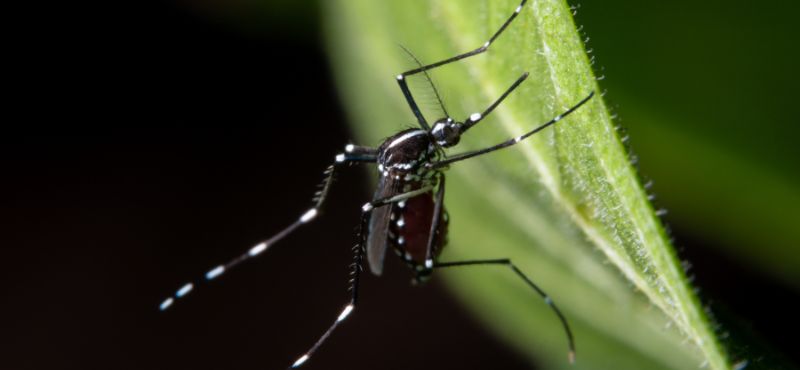Durham County confirms case of West Nile virus

Durham County has confirmed its first case of West Nile virus in a Durham County resident in 2025. This case is the first in North Carolina in 2025 and the first in Durham County since 2022. To protect the patient’s privacy, no further information about this individual will be provided.
West Nile virus is transmitted to people by bites from infected mosquitoes. In a very small number of cases it has been spread through blood transfusions, organ transplants, breastfeeding, and, during pregnancy, from mother to baby. It cannot be spread by casual person-to-person contact.
“The best way to prevent West Nile virus is to prevent any mosquito bites, especially this time of year when mosquito activity is higher,” said Durham County Department of Public Health Environmental Health Director James Salter. “People should take steps to prevent mosquito bites and all bug bites anytime they’re going to be outside in order to reduce their risk of getting West Nile or any vector-borne diseases, which are diseases carried by mosquitoes, fleas, and ticks.”
Most people infected with West Nile virus do not develop any symptoms. About 1 in 5 people who are infected develop a fever with other symptoms such as headache, body aches, joint pains, vomiting, diarrhea, or rash. About 1 in 150 people who are infected develop a severe illness affecting the central nervous system, with symptoms including high fever, headache, muscle weakness, vision loss, and numbness. If you suspect you may have West Nile virus, talk with your health care provider. More information about West Nile symptoms can be found on the CDC’s website here.
To prevent mosquito bites and vector-borne disease, the North Carolina Department of Health and Human Services recommends the following:
- When spending time outdoors, use an EPA-registered insect repellent and wear clothing and gear treated with permethrin. Remember to always follow label instructions when using these products.
- Wear loose-fitting, long-sleeved shirts and pants when outdoors.
- Prevent water from collecting in containers around your home. After every rainfall, tip out any containers that can hold water, even a small amount, such as saucers under flowerpots. Cover, turn over or throw away items like toys, buckets and tires. Change the water in birdbaths and pet bowls at least twice a week.
- Keep gutters clean and in good repair and replace corrugated downspout extensions with smooth extensions to prevent mosquito larvae from growing.
- Make sure rain barrels have tight-fitting screens or lids.
- Treat standing water in containers and low areas around the home with EPA-approved larvicides. Many options are available that last for weeks to months.
- When possible, drain any standing water on your property such as puddles and ditches that hold water for more than four days after rain.
- Use screened windows and doors, and make sure screens fit tightly and are not torn.
For more information, visit the NCDHHS West Nile Virus webpage or the CDC West Nile virus webpage and learn more about preventing mosquito bites.


